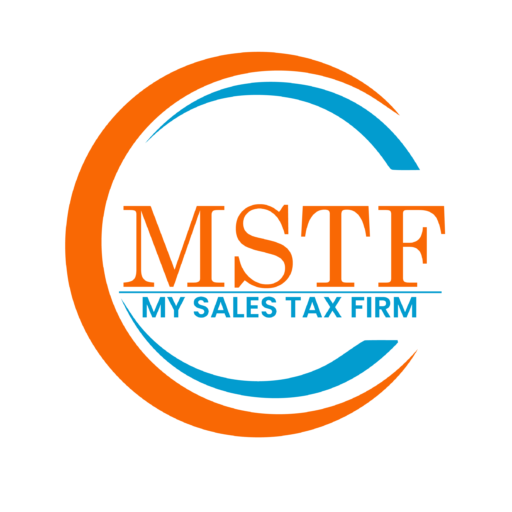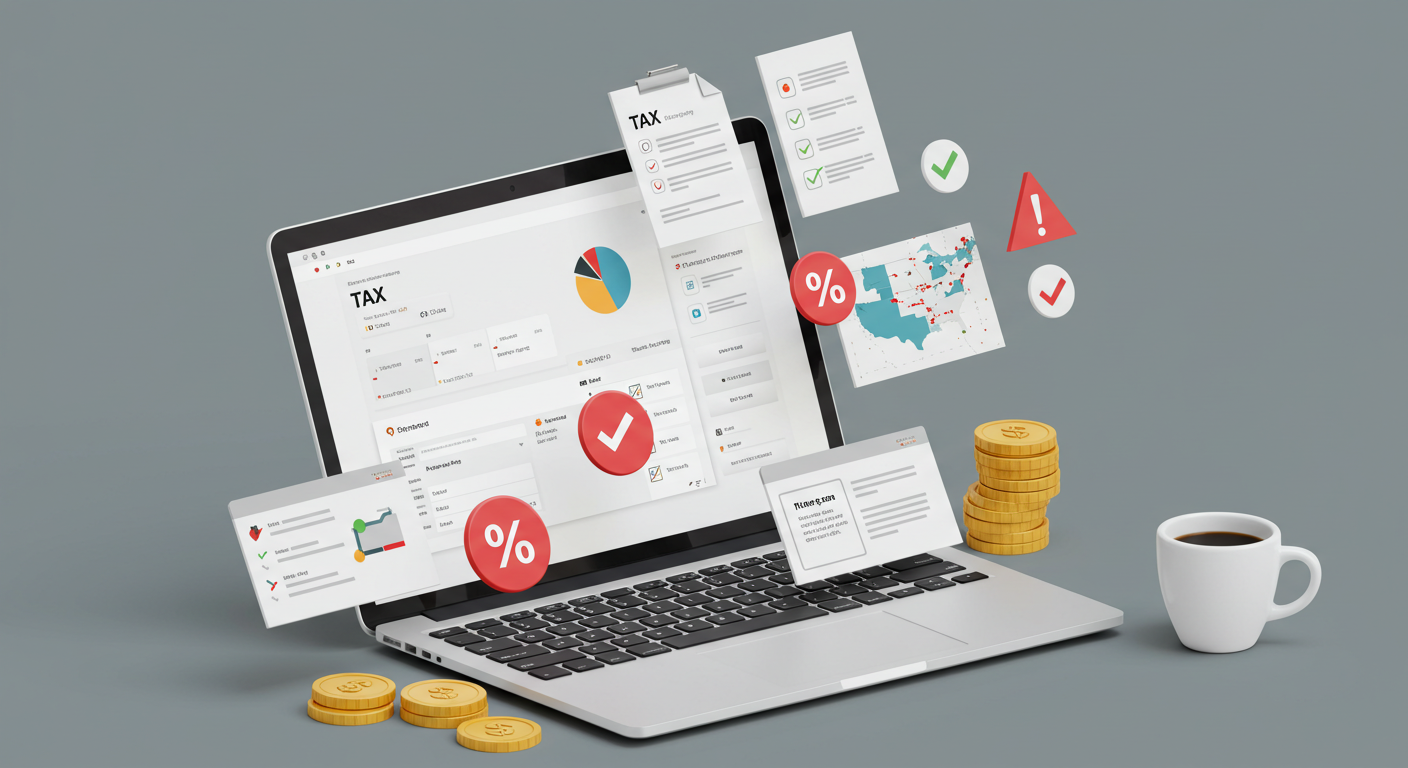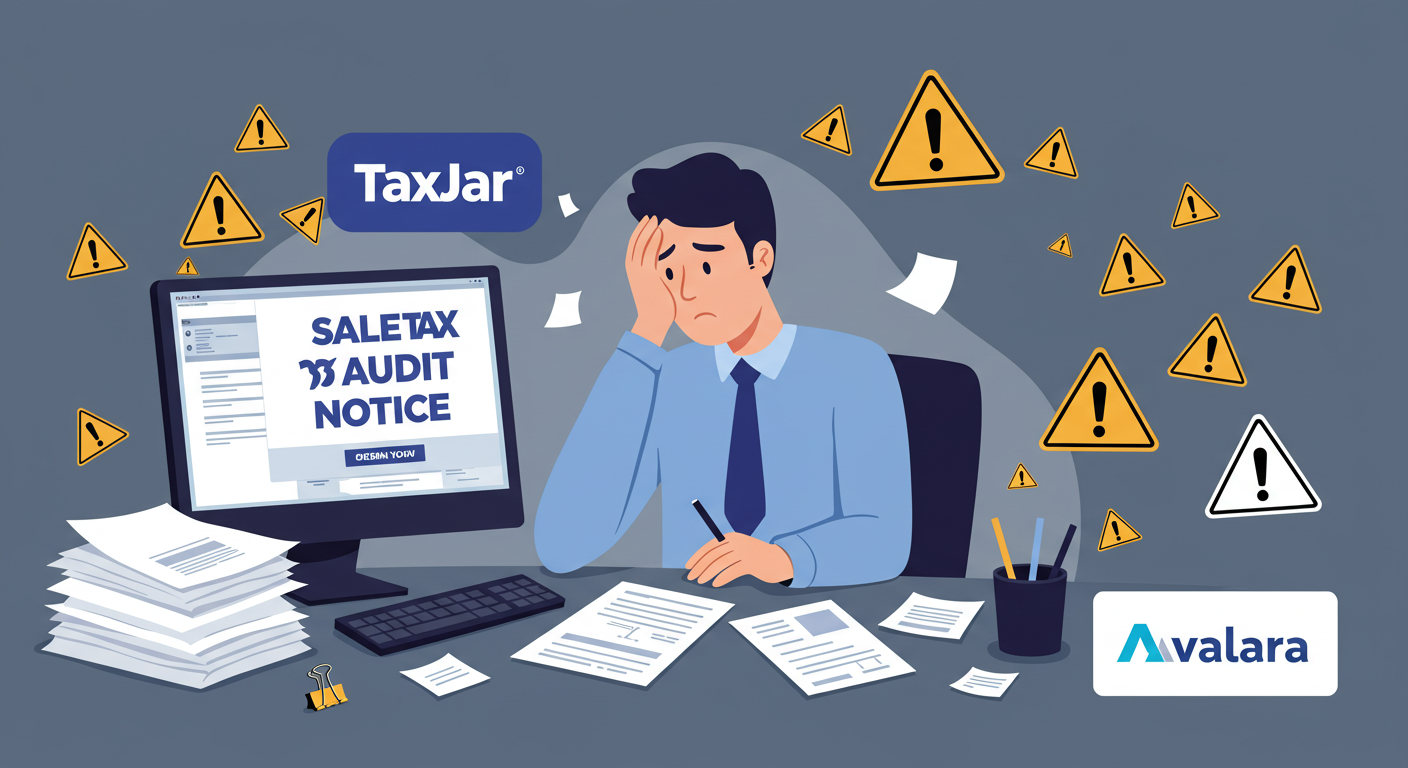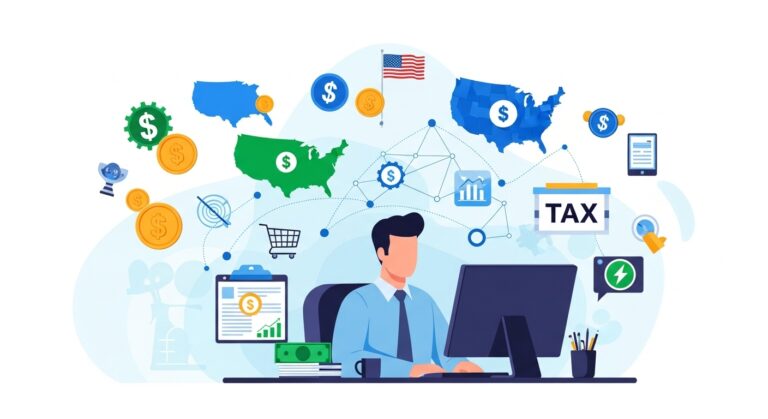Selling into the United States? You might owe sales tax — even if your business is based halfway across the globe. Many international businesses assume that U.S. sales tax rules don’t apply to them. But in today’s post-Wayfair economy, that assumption can be a costly mistake. U.S. states now aggressively enforce sales tax laws against foreign sellers, especially those in e-commerce. If you’re an international seller targeting U.S. customers, this guide will help you understand your risks and what to do next.
The Rise of International Sales to U.S. Customers
Cross-border e-commerce has exploded in recent years. Whether you’re shipping physical goods via Shopify, selling digital downloads, or dropshipping from overseas, the U.S. is likely a key market for your business. But with access comes responsibility—particularly when it comes to tax compliance.
U.S. consumers expect seamless checkout experiences, including accurate sales tax calculations. And behind the scenes, states are watching. They’re tracking sales volume and aggressively enforcing tax laws on foreign businesses that meet their thresholds. If you’re not paying attention, you could already be in violation—without even realizing it.
Why International Sellers Must Understand U.S. Sales Tax Rules
Unlike countries with a centralized VAT system, the U.S. operates under a state-based sales tax model. Each state sets its own rules, rates, filing deadlines, and thresholds. There’s no single federal sales tax authority—so you’re dealing with up to 46 different tax systems.
Many international sellers wrongly believe they’re “outside” the U.S. tax net. But U.S. states don’t care where your company is headquartered. If you’re doing business in their state — especially if you’re hitting specific sales or transaction thresholds — you’re expected to collect and remit tax. No exceptions.
Sales Tax Nexus – What It Means for International Sellers
Physical Nexus vs. Economic Nexus
Sales tax nexus is a legal term for your connection to a state. Historically, nexus meant having a physical presence — an office, warehouse, or employees in the U.S. If you didn’t have boots on the ground, you didn’t have to worry.
But that changed with the Supreme Court’s landmark ruling in South Dakota v. Wayfair (2018). The decision gave states the green light to impose economic nexus laws, allowing them to require tax collection from businesses based solely on sales activity—even if located abroad.
How the Wayfair Decision Changed Everything
Post-Wayfair, nearly every U.S. state with a sales tax has passed laws targeting remote and international sellers. These laws base tax obligations on revenue or transaction counts; not physical presence. That means you could be sitting in Europe, selling through an online marketplace, and still be liable for taxes in Texas, New York, or California.
Economic Nexus Thresholds by State
Each state sets its own nexus thresholds. While $100,000 in sales or 200 transactions is common, others are stricter. Here are a few notable examples:
California: $500,000 in annual sales (no transaction count).
New York: $500,000 in sales and 100 transactions annually.
Texas: $500,000 in annual gross revenue from sales into Texas.
Florida: $100,000 in annual taxable remote sales.
Even if you make just a few high-value sales to a single state, you could cross the threshold and become liable. And if you do, that state expects you to act; quickly.
Common Pitfalls for Foreign Sellers Expanding into the U.S.
International sellers often make the same mistakes:
Assuming U.S. sales tax doesn’t apply to them
Using one-size-fits-all platforms like Shopify or Amazon without understanding tax settings
Failing to monitor sales by state
Relying on automation tools without proper human oversight
Missing deadlines, triggering audits, or incurring penalties
It’s easy to fall behind. And once states catch wind of non-compliance, the consequences can be swift and expensive—especially for businesses without a legal presence in the U.S.
Sales Tax Compliance Steps for International Sellers
1. Determine Where You Have Nexus
Start by analyzing your sales data. Identify states where your revenue or transaction volume may have crossed thresholds. Review the rules for each state carefully—some are stricter than others.
2. Register for Sales Tax Permits
You must register with the appropriate state tax authority before collecting sales tax. This involves submitting legal documents and possibly designating a U.S.-based representative. It’s not always as simple as filling out a form.
3. Collecting the Right Amount of Sales Tax
Once registered, you’re required to collect tax at the proper rate for each jurisdiction. Keep in mind: states have different tax rates, exemptions, and taxability rules. You can’t just charge a flat percentage across the board.
4. Filing Returns Accurately and On Time
Returns may be due monthly, quarterly, or annually. Miss a deadline — even with $0 owed — and you risk penalties. Some states require separate filings for marketplace and direct sales.
5. Avoid Relying on Automation Alone
Software tools like Avalara or TaxJar might sound helpful, but they’re not foolproof. Automation often leads to false filings, underreporting, or missed states. Worse; some states consider bad data just as bad as no data. Always consult a qualified expert.
What Happens If You Ignore U.S. Sales Tax Laws?
Penalties vary by state but may include:
Retroactive tax assessments (up to 3–7 years back)
Interest and late fees
Civil and even criminal liability in some jurisdictions
Marketplace suspensions or payment processor holds
Damage to your brand’s reputation
Some states even pursue international collections or flag your company with customs agencies. Non-compliance is not a risk worth taking.
How My Sales Tax Firm Helps International Sellers Stay Compliant
At My Sales Tax Firm, we specialize in helping international eCommerce businesses navigate U.S. sales tax laws. We:
Analyze your data for potential nexus
Handle all state registrations and permit filings
Prepare and file your tax returns accurately and on time
Monitor compliance and keep you informed of law changes
Represent you in case of audits or enforcement action
We work with sellers from Europe, Asia, Latin America, and beyond. Whether you’re shipping products or selling digital services, we simplify U.S. tax so you can focus on growth.
Final Thoughts: Compliance Is Not Optional
The U.S. sales tax system is complex — especially for non-U.S. businesses. But complexity doesn’t excuse liability. If you sell to U.S. customers, chances are you already owe something to one or more states.
Rather than rely on guesswork or risky automation, work with professionals who understand how to protect your business. Book a free consultation with My Sales Tax Firm today and gain peace of mind.









